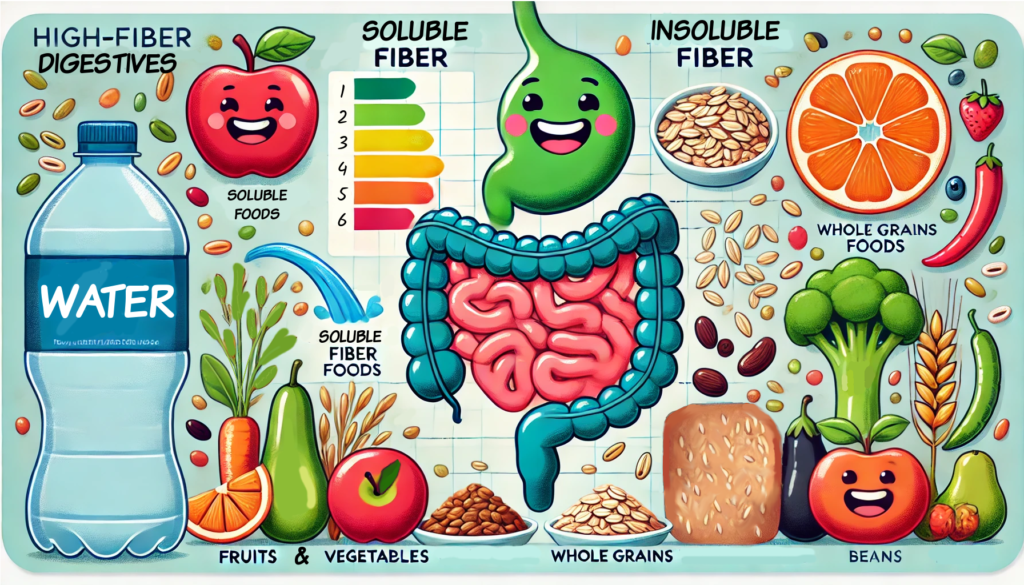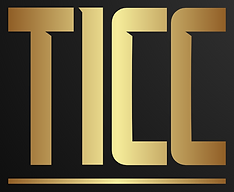
By: Lisa C. Watson, PsyD, MPH
Let’s talk about something that may be a bit awkward for some but is super important: bowel movements! Yes, pooping regularly is key to keeping your gut happy, and your gut health plays a big role in how you feel both physically and mentally. Constipation can cause discomfort, mood swings, and even stress. So, let’s explore why getting things moving is essential and how you can achieve it with the right fiber intake and hydration.
Why Regular Bowel Movements Matter
Regular bowel movements are a sign that your digestive system is working well, and your body is eliminating waste and toxins efficiently. Ideally, you should be going anywhere from three times a week to three times a day. According to the Bristol Stool Chart, the “perfect poop” (yes, there’s a guide for that!) is type 3 or 4—a smooth, sausage-like shape. https://www.webmd.com/digestive-disorders/poop-chart-bristol-stool-scale
When you’re not pooping regularly, toxins can build up in your system, and you might feel sluggish, bloated, or irritable. That’s right, constipation can mess with your mood! Your gut and brain are connected through the gut-brain axis, so when your digestion slows down, it can send negative signals to your brain, making you feel tired and cranky. Basically, constipation is no good for your body or your mental health.
The Fiber Fix: Types and Benefits
Fiber is your digestive system’s best friend. There are two types of fiber: soluble and insoluble, and both are crucial to keeping you regular.
- Soluble Fiber: This type dissolves in water, forming a gel-like substance that helps regulate blood sugar and lowers cholesterol. You’ll find soluble fiber in foods like oats, apples, beans, and citrus fruits. Think of it as the smooth operator that keeps everything flowing nicely.
- Insoluble Fiber: This type adds bulk to your stool, helping food pass through your digestive system. It’s found in whole grains, nuts, seeds, and vegetables like broccoli and cauliflower. Insoluble fiber is like the broom that sweeps things along in your digestive tract.
How Much Fiber Do You Need?
Here’s how much fiber the Institute of Medicine recommends each day based on age and gender:
- Men: About 38 grams per day.
- Women: Around 25 grams per day.
- Children: Between 14 and 31 grams per day, depending on age.
If you’re wondering whether you’re hitting your fiber goals, chances are, you might be falling short. The average person only gets around 15 grams of fiber per day, which is much less than what’s recommended.
Best Fiber-Rich Foods to Include
You don’t have to reach for supplements right away. There are plenty of delicious fiber-rich foods that can help you reach your daily goals:
- Fruits: Apples, pears, and berries are packed with fiber and are easy to snack on.
- Vegetables: Carrots, broccoli, and leafy greens provide both fiber and essential nutrients.
- Legumes: Beans, lentils, and chickpeas are fiber powerhouses that also provide plant-based protein.
- Whole Grains: Think brown rice, quinoa, and whole-grain bread for an extra fiber boost.
- Nuts and Seeds: Almonds, flaxseeds, and chia seeds are great sources of both fiber and healthy fats.
Fiber and Irritable Bowel Syndrome (IBS)
For those with Irritable Bowel Syndrome (IBS), fiber can be tricky. Some types of fiber can trigger bloating and discomfort. If you have IBS, consider these tips:
- Start Slowly: Gradually increase your fiber intake to give your gut time to adjust.
- Focus on Soluble Fiber: Foods like oats, bananas, and psyllium can be easier on your digestive system.
- Stay Hydrated: Water is key to helping fiber work its magic without causing constipation.
Hydration is Key: How Much Water Do You Need?
Fiber needs water to do its job! Without enough water, fiber can actually make constipation worse by drying out your stool. According to the National Academies of Sciences, Engineering, and Medicine, the general recommendations for water intake are:
- Men: About 125 ounces (3.7 liters) per day.
- Women: Around 91 ounces (2.7 liters) per day.
- Children: Around 64 ounces (1.9 liters) per day.
These recommendations include water from all beverages and food, but plain water is the best way to stay hydrated and support healthy digestion.
Fiber Supplements to Consider
If you’re struggling to get enough fiber through food, you might consider supplements like psyllium husk, inulin, or methylcellulose. These supplements can help boost your fiber intake, but it’s important to start slow to avoid bloating or discomfort. And remember, even with supplements, drinking plenty of water is essential!
Wrap-Up: Keep Things Moving!
When it comes to gut health, regular bowel movements are essential for maintaining your physical and mental well-being. Fiber and water are your secret weapons in the fight against constipation. So, the next time you’re feeling sluggish, ask yourself: “Am I getting enough fiber and drinking enough water?” And don’t forget to aim for type 3 or 4 on the Bristol Stool Chart for that perfect poop!
For more great articles like this, scroll through the blog! Explore more about mental health and your body on this site: https://ticcenter.org/blog-2/

